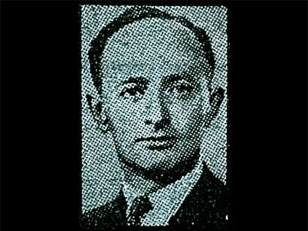
Michael Shapiro
“There were two Shapiros in Beijing in the 1950s, 60s and 70s, one of them is still alive, Sydney Shapiro, an American from Brooklyn, New York, and the other was my father Michael Shapiro who died in 1986,” said Roger Shapiro, now presuing his personal interest in the area of music and theatre after 25 years’ work in joint ventures.
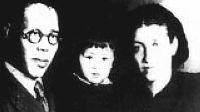 |
Life and love of Li Sha |
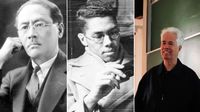 |
Sincere friends of true communists of China - Eugene Chen family |
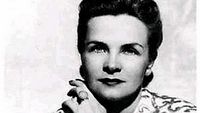 |
Helen Snow: A life dedicated to China |
“In 1949, the Chinese communist central committee wrote to the British central committee, asking them to send a few comrades to China to help with socialist construction and socialist revolution. So the British Communist Party sent four people to China, my father included,”said Roger Shapiro.
“My father did not get to Beijing with others although they left London together, he did not get to Beijing until the winter of 1950, because he was held in Moscow by the Soviet Union because of his Jewish origin. He was questioned then and they were quiet suspicious about what was a Jew doing.”
In 1948, when Israel was just founded, many Jews in the Soviet Union and the East European countries became quiet restless, and they wanted to leave. It was only after the intervention of the Communist Party of China that Shapiro managed to continue his journey to Beijing. So in 1950, he finally arrived in Beijing.
Michael Shapiro was born into a Jewish family in a beautiful town in Ukraine which used to be part of the Soviet Union in 1910. From the end of the 19th century, the tsar of Russia(沙皇) initiated a movement to persecute Jews and expel them from his kingdom, so hundreds of thousands of Jews moved from Russia and its neighboring East European countries to find new homes in the west. The Shapiro family landed in London and stayed in the East End of London.
“The East End of London, it was like a slum district. But nowadays it is not like the east end of my father’s days. It is much more modernized”, said Roger Shapiro. And in the World WarⅡ afterwards, it was a very heavily bombed area by the Nazis.
Michael Shapiro went to London School of Economics, which produced many graduates who became believers, supporters, or even fighters for socialism and communism. Shapiro was one of them. After graduation in the 1930s, he became a lecturer and was very active in Anti-Nazi movement.
Upon his arrival in Beijing, he immediately joined Xinhua, China’s state news agency, as a foreign expert working as what was called a language polisher, final proofreading all the stories and news releases, translated from Chinese into English, only with his pen.
Someone without a passport
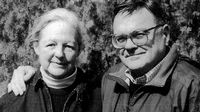 |
The Pinkhams and their Chinese cause |
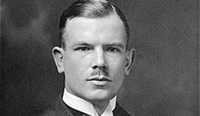 |
Revolutionary travails transform Norman Bethune |
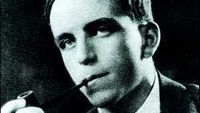 |
War journalist Israel Epstein and his dedication to China |
Soon after he joined Xinhua, he was assigned to the Korean War (1950-1953) front to report on the war to the western world, and work on the prisoners of war. At that time, the US-led UN forces had British soldiers fighting in Korea against the Korean people’s army and the Chinese volunteer forces(志愿军).
“He actually went to the Korean War front twice. He went to visit the prisoners of war and to teach them English, for many of them were illiterate that they could not even write. He would tell them to write letters home. And he will also write for his newspaper back in England, Daily Worker.”
“And because of that, the British government said, you, Michael Shapiro, you work on the enemy’s side, so you are a betrayer. In 1958, the year when I was born, his passport expired,” he said, “You must know that Britain didn’t have an embassy until 1973 in China. It only had a small charge affairs office in Beijing, so the office told my father, ‘no, we cannot give you a new passport, you have to go back to England.’”
If he went back in that situation, he would have faced trial.
At that time, the ideological split came between China and the Soviet Union. The British Communist Party also split with the Chinese Communist Party in the early 1960s.
“Actually the split between China and the Soviet Union caused great havoc and chaos in the western world. The British Communist Party disintegrated because of the split. The British Communist Party broke up into many small groups; some were saying the Chinese were right, some were saying, no, the Russians were right. There were huge debates went on in those years,”
Michael Shapiro was the only one left of the four who came to China. Among the other three people, two died and one left. And in1960, as Roger said, a book on something which was close to “treason”, which mentioned his father, further reduced the chance of his going back.
In that situation, Shapiro wanted to take up a Chinese citizenship, but was rejected and expected by the Chinese side to stay as an idol of defiance.
“In the 1960s, when the Chinese and Soviet communist parties started an ideological battle, the Chinese Communist Party wrote altogether nine letters, called Jiuping(九评), or nine critical letters, criticizing the Soviet Union, and likely its running dogs, such as Yugoslavia, Hungary, accusing them of being revisionist, a term you do not hear much today. Whenever the Communist Party of China wrote a letter to the Soviet Union, people like my father would be asked to go into a hotel and work there day and night to translate and proofread these letters and have them published.” Roger Shapiro recalled, “I remember he would come home very late, and sometimes work through the night. At Xinhua News Agency there are night shifts, very frequent and common.”
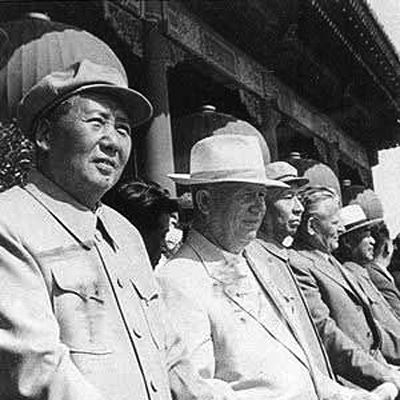
Mao Zedong and Khrushchev on Tian'anmen Tower, Beijing, in 1959. Photo: Xinhua
Roger Shapiro’s Shanghai-born mother met his father in the United States. The couple had two sons. “I tried to believe one of the reasons my father never left China was because he had family.” Roger Shapiro said.
Michael Shapiro in Cultural Revolution
And the Cultural Revolution came in 1966. Michael Shapiro was thrown into Qincheng Prison(秦城监狱), in the suburbs of Beijing. He was there from 1968 to 1973, solitary confined,
It’s very difficult to tell what exactly the reason behind the imprisonment was, Roger said. “For five years I didn’t see him. At the age of 10, you don’t see someone for five years you start to forget what he was all about. You have no contact with him and he taught you nothing. So I think that was part of the reason why I know so little about my father.” Roger Shapiro said.
“If you study history you will know that, time and again, the word “xenophobia” appear. And in the years of the Cultural Revolution, if you have a slightest overseas relationship you will be scrutinized, you will be regarded as of a different class. Investigations will be launched against you.”
In 1972, US President Richard Nixon visited China. In 1973, Edward Heath, British prime minister, came to China and met with Mao and later they set up embassies in each other’s capital.
One day, the British government informed Michael Shapiro to go to the British Embassy and get his passport, and the British Embassy asked him “Don’t you hate the Chinese they put you into prison for five years? Don’t you have any grievance; don’t you want to lodge any petitions against them?”
“My father said, that’s the affair between myself and the Chinese, nothing to do with you.”
That was his attitude. Actually, Michael Shapiro, after the release from prison, chose not to tell his family what went on in the prison.
So even after the five years in prison, Michael Shapiro never lost faith in China. Instead, he immediately threw himself into work. However, his health deteriorated in prison where his diseases and illnesses were not treated timely thus he could no longer do his former job. But he would read the Xinhua news bulletin and write or tell his colleagues periodically, and share with them his comments on the stories.
Michael Shapiro died on September 29th, 1986 at the age of 76. His ashes were scattered in Bohai Bay, just outside Beidaihe, the place he used to go every summer and a place he loved so much.
Michael Shapiro had received all kinds of honors and recognitions from the Chinese government, his colleagues and friends for what he did in China.
|
|
||
 |
| Touched | Sympathetic | Bored | Angry | Amused | Sad | Happy | No comment |
Rhythm Media Group is a multi-media company, operating a US-based Chinese daily newspaper, The China Press, and the paper's website - uschinapress.com (which has mobile-app version), as well as a Beijing-based English website Sino-US.com. The group boasts 15 branch offices across the US, and a number of cultural centers focusing on culture-related business in the North America, Chinese mainland, Hong Kong and Taiwan.Launched in September 2012, the Sino-US.com is designed to serve as a bridge between China and the US, and to keep its readership inside or outside China better informed by providing news and insights on China's current affairs, culture, life, business, people and sports.
|
|